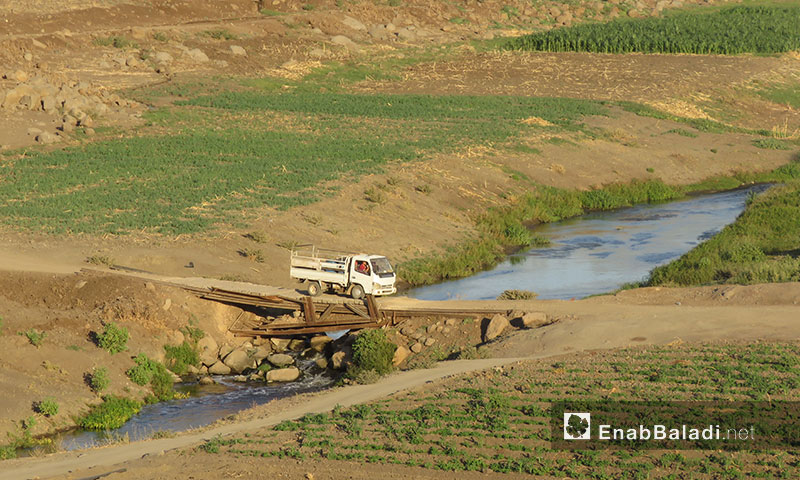



The northern countryside of Homs witnessed afforestation campaigns, which people and concerned entities have described as shy, especially with the expansion of the areas empty of trees with cutting large numbers of them to be used for heating and other ends under the siege.
The last of these campaigns finished with the afforestation of the public garden in the city of al-Rastan, north of Homs in early January. The campaign lasted for three days, during which 70 trees were planted with the participation of the city’s children, under the aegis of “Our Children Voluntary Team” for psychological support.
According to the Team’s Deputy Director Bassem al-Homsi the campaign is a part of a process that aims to afforest all the city’s gardens after the people were forced to cut down the trees to use them for heating and daily life, which emptied most of the green spaces.
The Team’s management aims to reduce the risk of desertification in the area, as to conduct frequent campaigns later on, “despite the simple resources we are working on.”
An afforestation campaign was launched in Rastan on the 23th of last November, in cooperation and coordination between the city’s Local Council and “Ihsan” Relief and Development Foundation. Through the campaign, 50 trees has been planted in one of the targeted gardens out of 300 trees that management sought to plant throughout the city.
According to Homs’ Local Council, people throughout the past three decades have emptied the total wooded area. The firewood-gathering process increased under the siege imposed by the Syrian regime under the slogan “Hunger or kneeling”.
In his interview with Enab Baladi, the Council’s Director Amir Edris said that the firewood-gathering process began with the prevention of admitting fuel to the area “the smuggled amount, till this day, does not meet the smallest portion of needs.”
Farm areas, of fruit trees, have also witnessed a process of firewood gathering. According to Edris, there are no accurate statistics about the areas that suffered overgrazing in the region, “for [such statistics] require different circumstances than these available in rural Homs today.”
The governorate council, together with some of the community organizations and the local sub-councils, in addition to the “Free Farmers Assembly” in Homs, sought to restore part of the tree cover through afforestation campaigns, according to Idris, in addition to awareness seminars on the matter.
However, he described all attempts and efforts as “below aspirations, but nothing else can be done.”
Preparing for the next season, the Council is seeking to secure financial support and launch a “quality” afforestation campaign, in cooperation with the concerned institutions and the Ministry of Agriculture in the Interim Government. However, the council has failed to do so to the date.
Citizen Ahmed Said from the northern countryside of Homs, said that the recent afforestation campaign “provided the opportunity for children to recognize the importance of trees for the environment in the light of the acute shortage of fruit trees and forests.”
Ahmad told Enab Baladi that it is important to broaden the scope of these campaigns, assuring that “despite its importance, what is being done today would not be enough.”
According to activist Wa’el Juma, in the first two years of the revolution, the firewood-gatherings targeted forestry trees, but the past three years the gathering processes targeted the fruit trees, in the absence of projects that limit losing these trees.
To Enab Baladi, Wa’el said that olive, almond, peaches and other types of trees have been cut down from private fields, pointing out to the possibility of the soil and nature being affected by this changes, as “after a while, [the soil] might be uncultivable.”
The activist said that the afforestation campaigns are limited to the gardens and the entrances of the city, “but they do not rise to the required level.” He called on the concerned parties “to overcome the situation and take care of the lands in the northern countryside of Homs, famous for their fertility.”
if you think the article contain wrong information or you have additional details Send Correction